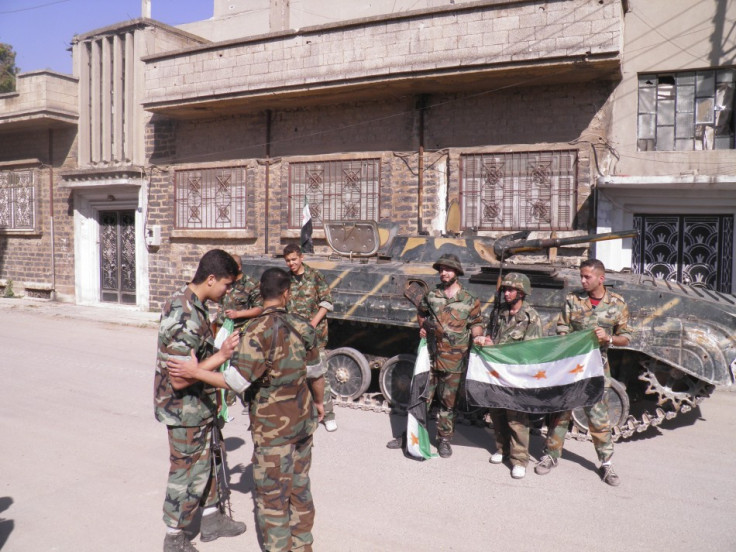Syria: Russia Warns Against Rebel Training Camps in Kosovo, Opposition Angry at Arab League

Russian United Nations ambassador Vitaly Churkin has voiced concern over reports that Syrian rebels are receiving military training in Kosovo, as tensions over the uprising spill outside the country.
Syrian activists warned the violence has continuing unabated and that at least 22 people have died at the hands of the security forces already this week, despite the country officially agreeing to UN-Arab League envoy Kofi Annan's peace plan last month.
Meanwhile, opposition groups claimed the rebels had killed at least 23 members of the Syrian security forces. Clashes between pro- and anti-Assad militants were also reported in Lebanon.
A new player in the Syrian uprising has now emerged, as Churkin raised the issue of Syrian rebels being trained in Kosovo.
Churkin condemned "disturbing information" that authorities in Kosovo had been "establishing contacts with the Syrian opposition to train insurgents".
He told a UN Security Council meeting on Kosovo that if the reports are true, the presence and training of Syrian fighters in the country would only undermine international efforts to end the violence in Syria.
Moreover, turning Kosovo into "an international training centre for insurgents of various armed units could become a serious destabilising factor going beyond the Balkan region", he added.
The ambassador then called on the European Union and the UN, which both have missions in Kosovo, to prevent such training from taking place.
Recent media reports suggest at least three exiled Syrian activists recently visited Kosovo to hold talks with former rebels, who fought a separatist war against Serbia in 1998-1999.
Churkin's comments came as Kosovo's foreign minister, Enver Hoxhaj, voiced strong support for the Syrian opposition.
Hoxhaj said his government had established diplomatic contact with members of the Syrian opposition.
"We were among the first governments in Europe who were supporting the opposition in Libya and in other Arab countries last year, because we were fighting for the same aspirations, for the same values," he said.
"We have the same approach to Syria and have some diplomatic contacts between my government and [the] Syrian opposition," Hoxha said, expressing his support for their cause.
He also refuted the claim that Syrian rebels were being trained in Kosovo.
Syrian opposition: SNC 'angry' at Arab League
The Syrian National Council, the most prominent Syrian opposition group on the international scene, has said it will not join the Arab League-brokered talks in Cairo set to take place on 16 and 17 May.
"The SNC will not be going to the meeting in Cairo because it [the Arab League] has not invited the group as an official body but as individual members," SNC spokesman Ahmed Ramadan told Reuters.
The group is currently holding crisis talks in Rome to decide on its leadership in the hope of appearing as a more cohesive unit.
Further confusing reports on the Syrian opposition have continued to emerge, with more claims that jihadists or obscure radical Islamist groups are becoming increasingly involved in the armed rebellion.
Analysts are still divided over whether such groups act independently or are being manipulated by the regime.
Syrian President Bashar al-Assad's main line of defence since the beginning of the uprising 14 months ago has been to blame the violence on "terrorists groups" trying to destabilise the country.
In Damascus, two suicide bombings that killed at least 55 people and wounded 372 on 10 May were initially reportedly to have been claimed by the Al-Nusra Front in a video posted online.
Al-Nusra, which means "support" in Arabic, was unknown prior to the Syrian revolt and little is known about the individuals behind the group or how it is organised.
The group has, nevertheless, denied making the video, which it called "fabricated", prompting further speculation as to who was actually responsible for the blasts.
© Copyright IBTimes 2025. All rights reserved.




















